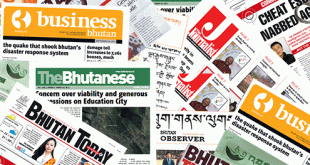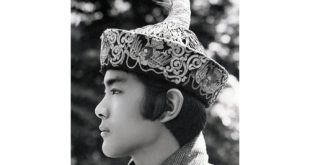The National Education Policy (NEP), set to be implemented from the academic session of 2026, brings significant reforms across all levels of education.
Under the new NEP, the government has reaffirmed that education will remain free up to Grade X for all school-going children, in line with constitutional provisions.
The Ministry of Education and Skills Development (MoESD) said, “This includes Early Childhood Care and Development (ECCD) programs and its variations, primary education, and secondary education up to grade X.”
According to MoESD, a major shift in the new policy is the introduction of routine developmental screening for all children enrolled in ECCD programs. These screenings will be carried out in collaboration with relevant government agencies and Civil Society Organizations (CSOs), aiming for early identification and support. According to the policy, “These screenings shall assess physical, cognitive, emotional, and social development to identify potential disabilities or delays.”
This marks the first time that a structured system for early detection is being institutionalized at the national level. Further, the policy states, “If a disability or developmental delay is suspected, the child shall be referred to specialized healthcare providers for evaluation and diagnosis.”
MoESD said that children who are formally diagnosed will receive individualized support plans, which may involve therapy, specialized instruction, or other targeted services created for their needs.
By establishing this system, ECCD shifts from simply offering childcare to serving as the first point of intervention for long-term wellbeing and inclusion.
It also emphasizes continuous improvement in accessibility and quality of learning for students with special education needs (SEN) through inclusive learning environments, upgraded infrastructure, and professional support for educators. MoESD said, “Educators in collaboration with parents and specialized professionals shall develop Individualized Education Plans (IEPs) which are dynamic and based on students’ progress and changing needs.”
Additionally, for students with SEN, a comprehensive transition plans will ensure smooth progression between grades, education levels, and eventually into post-secondary education and employment. “In addition, there shall be collaboration with the community and relevant agencies to facilitate their transition into an independent adult life,” the policy states.
Beyond inclusive education, the new NEP introduces several other significant reforms that will reshape schools starting next year.
Most importantly, the policy prioritizes addressing the needs of out-of-school children and youth. “Facilitating the return of out-of-school children and youth to the formal education system or providing alternative pathways for learning, including skills development and training, shall be introduced,” MoESD states.
The policy originally set the minimum entry age for Pre-Primary (PP) at six years (72 months). However, a recent Cabinet decision has reversed this, allowing children to join PP at the age of five (60 months).
The policy places strict limits on school fees, ensuring that families are not burdened with costs beyond what is approved by MoESD. “Schools shall not collect any fees or contribution from learners/families other than those approved by the ministry,” it states.
In addition, it states, “The ministry shall determine the free learning materials to be provided by the government to the public and private schools, based on the curriculum requirement as well as locations and other factors.”
School planning is guided by the principle of keeping children close to home, promoting a natural environment for their growth and wellbeing.
“School location and facility planning shall also be guided by the principle of keeping the young children closest to their homes, which is the most natural environment for growth and wellbeing of children,” the policy states.
The policy also mandates dedicated facilities for extracurricular activities, including sports fields, arts spaces, and club rooms, to support students’ physical, artistic, and social development.
At grades XI and XII, students will have options to study Arts, Commerce, Science and Technology, Rigzhung, and TVET as usual, however, with the new policy they will be given additional flexibility across streams to suit individual interests and aptitudes.
As Bhutan’s Education Curriculum is being aligned with the Cambridge Curriculum, the student’s assessment will shift from evaluating memorization to measuring understanding and application through competency-based methods. “At the school level, the assessment and examination system shall serve as a means to determine strengths and weaknesses in a child’s overall development, aiding teachers in customizing educational programs to fulfil curriculum goals,” MoESD said.
The Bhutan Council for School Examination and Assessment (BCSEA) will oversee National Education Assessments and Board Examinations at the end of basic education (Grade X) and secondary education (Grade XII), as well as at other levels determined by MoESD, ensuring standardized evaluation nationwide.
Another change with policy that was not implemented in the history of board examinations in schools of Bhutan is MoESD’s flexibility to allow students to re-sit for examination if they fail in one compulsory subject.
According to MoESD, “The ministry may provide an opportunity for students who fail in one compulsory subject by a narrow margin, to re-sit the board examination for that subject, provided they have demonstrated exceptional performance in the other two compulsory subjects.”
This new policy will make TVET programs accessible to all, regardless of gender, background, or disabilities, with flexible schedules and community-based learning. The programs will align with labour market needs, emphasizing entrepreneurship, 21st-century skills, and hands-on, work-based training.
To strengthen the education system, MoESD plans to attract and retain top talent teachers across ECCD, schools, TVET, and higher education. This will be achieved through competitive compensation, improved working conditions, collaboration with Colleges of Education for rigorous candidate selection, and multiple entry pathways into the teaching profession.
MoESD restated its commitment with plans to offer competitive salaries, improving working conditions, and collaborating with Colleges of Education that will ensure high-quality educators across all levels of the education system.
According to MoESD, the new policy’s reforms spanning from ECCD to higher education, the policy aims to ensure that every child and youth has access to quality education, supportive learning environments, and opportunities to reach their full potential.
 The Bhutanese Leading the way.
The Bhutanese Leading the way.




